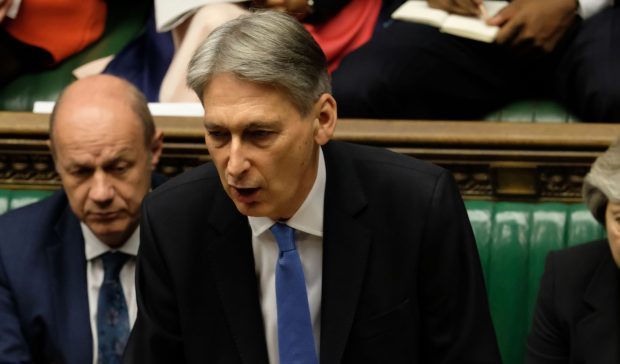The Chancellor is a fool and is to be mocked for whatever egregious mistakes he has committed in the budget, while everyone should take note that Scotland is down some £3 billion over 10 years and that is terrible.
Given the standard SNP response to any financial statement from down south, as paraphrased above, we should perhaps praise Philip Hammond for achieving something that the Scottish Government finds very hard.
Mr Hammond has made a decision. In fact, a great many. He has decided what the level of income tax should be, he has decided which loopholes should be closed and which new ones created. He has committed to spending money and finally responded to the blatant injustice of our emergency services paying VAT by scrapping that measure.
Whether they turn out to be good decisions, we shall find out, but they are actions. Mr Hammond, a man elected to take decisions by the people of his constituency, and then by dint of being a cabinet minister, by the people of Britain, has done what we asked of him.
Contrast that to the Scottish Government. We know the small ‘c’ conservative instinct of the Nats doesn’t favour boldness, but the evidence suggests any decision at all is proving tricky. On tax in particular – the holy grail of independence – they are hopelessly undecided. This is the party that campaigned for tax-raising powers in 1997, and offered to raise a “penny for Scotland” in the 1999 election.
That policy was not born of considered need to invest, but to gain an electoral edge on Labour.
In power in 2007 and the SNP no longer thought raising a penny was right – in fact, they allowed the tax-raising power to wither by not paying the annual fee for its maintenance.
Even when the world’s economy crashed and cuts were inevitable, the SNP was against tax raising. In 2010 it argued that Lord Calman’s tax proposals on extending devolution were all wrong. Yet in 2011 it voted to approve Lord Calman’s proposals, as contained in the second Scotland Bill.
The SNP argued that they needed “full control of the economic levers”. However, the second Scotland Bill of 2012 gave the Scottish Government control over Air Passenger Duty, which they vowed to cut.
When Nicola Sturgeon took over the leadership from Alex Salmond, she ditched a long-standing policy to cut corporation tax.
Some months later her finance spokesman in Westminster, Stuart Hosie, declared “tax competition” was a vital part of Scotland’s economic arsenal – implying a corporation tax cut was still on the agenda.
When a new set of tax proposals came along in the third Scotland Bill of 2016, the SNP complained these too were not enough and repeated the call for “full levers”.
Nicola Sturgeon went into the 2016 Holyrood election promising not to change the basic rate of income tax for the full term of this parliament. She argued that raising taxes might mean less income as rich people would flee rather than pay up.
What was needed, she said, was the full range of taxes so the system could be tweaked to maximum advantage.
Then Ms Sturgeon went into the budget process after that election with a plan to cut taxes – a wheeze only thwarted by the Greens refusing to offer support. A bare five months later, she announced at the opening of this parliamentary session that taxes might go up, and published a consultation document on this on November 2.
It isn’t really a consultation – it’s a bid for time, a device to shift the blame. The SNP are waiting to see which way Labour go on tax, and then they’ll go for something a bit similar.
In other words, the thinking hasn’t moved on from 1999 – tax is simply an electoral tool for the Nats. Within the space of 18 months, the SNP have adopted all the positions on tax it is possible to have: up, down and freeze. There are episodes of Strictly Come dancing with less posing than this.
Yesterday, Philip Hammond attempted to tweak the tax system to the maximum advantage of the British economy. He has the “full levers” of a sovereign state, and one which is in a precarious condition.
You and I might have done it differently but we can not accuse Mr Hammond of wanting to fail.
Yet the implication from the SNP is the Nats have a secret formula for taking an economy from low growth to high growth, which they will only reveal when they have those “levers”.
However, until that time, they haven’t got a clue. If you want decent health, education and welfare services, then taxes should rise, because good services are more expensive than we are currently paying. By blurring their tax position, they blur their purpose – every U-turn on tax is a blow to their claim that independence will deliver a fairer Scotland.
Dithering for fear of causing offence has come to dominate this administration. Yet the cause of independence rests on leadership above all.
If they can’t make a simple decision on tax, what hope the fate of the nation?
